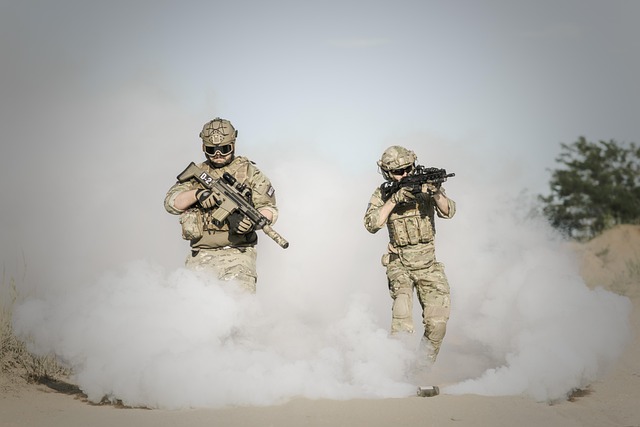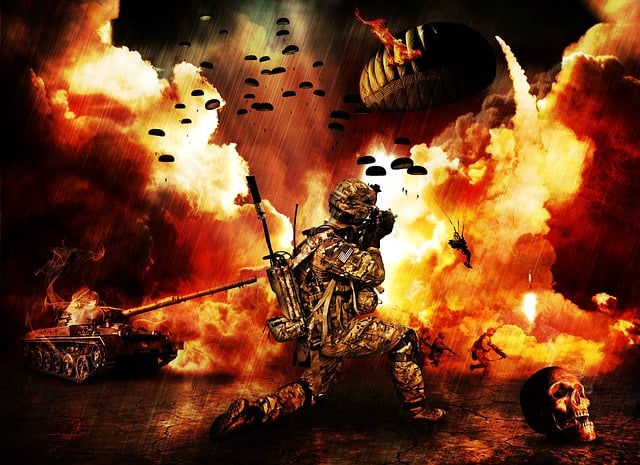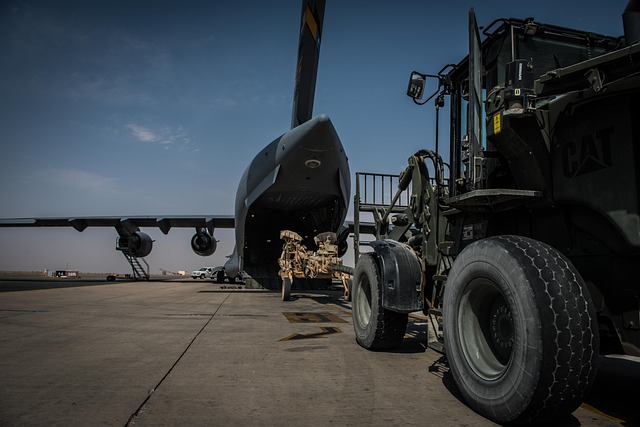US Army Special Forces prioritize tactical communication for diverse, often hostile missions. They use specialized radios with advanced encryption, secure messaging devices, and non-verbal cues like hand signals and body language for secrecy and adaptability. Rigorous training integrates these skills, enhancing mission success in asymmetrical warfare and providing tactical combat medicine support.
Special forces tactical communication is a critical aspect of modern warfare, with units like the US Army Special Forces requiring advanced skills and technology to achieve mission success. This article explores key components of effective communication in special operations, including rigorous training regimens, essential tactical radios, secure messaging protocols, and the mastery of non-verbal cues like hand signals and body language. Understanding these elements is crucial for enhancing operational effectiveness and ensuring the safety of US Army Special Forces operatives.
- US Army Special Forces: Communication Training Rigors
- Tactical Radios: Essential Tools for Special Ops
- Secure Messaging: Protecting Sensitive Information Exchange
- Hand Signals & Body Language: Non-Verbal Tactics Mastery
US Army Special Forces: Communication Training Rigors

The US Army Special Forces, known for their extreme training and specialized missions, place an immense emphasis on tactical communication. Their rigorous selection process includes intense physical and mental challenges, but mastering effective communication is equally vital. The Special Forces operate in diverse and often hostile environments, where clear and concise messaging can be the difference between success and failure.
Communication training for US Army Special Ops focuses on developing skills beyond basic language proficiency. This involves learning specialized jargon, encrypted radio communications, and field surgery techniques. They must also navigate complex supply chain management to ensure they have the right equipment for various scenarios. The ability to adapt their communication style in real-time, maintain secrecy, and coordinate with allies is paramount to achieving mission objectives.
Tactical Radios: Essential Tools for Special Ops

Special Operations require unique communication tools to adapt to their dynamic and often hostile environments. Tactical Radios are an indispensable asset for US Army Special Forces, playing a pivotal role in mission success. These radios facilitate real-time voice communication, allowing operators to coordinate actions, share critical intelligence, and make split-second decisions under intense pressure.
Designed for ruggedness and reliability, tactical radios used by the Special Forces are built to withstand extreme conditions. They employ advanced encryption technologies to ensure secure communications, protecting sensitive mission details from hostile interception. Moreover, these radios enable seamless connectivity across diverse operational areas, supporting both close-quarters combat and long-range surveillance missions. Their versatility and robust performance contribute significantly to the US Army Special Forces’ capability in conducting complex, asymmetrical warfare strategies, as well as providing tactical combat medicine support when needed.
Secure Messaging: Protecting Sensitive Information Exchange

In the realm of special forces tactical communication, secure messaging plays a pivotal role in protecting sensitive information exchange, which is crucial for mission success and operational security. The US Army Special Forces, known for their extreme training and versatility in global operations, rely on sophisticated encryption technologies to safeguard communications. These advanced systems ensure that only authorized personnel can access critical data, deterring potential adversaries from intercepting or deciphering sensitive tactical plans and intelligence.
Similar online stores offering specialized equipment for us army delta force special operations units and other counterintelligence specialists often stock cutting-edge secure messaging devices and software. This technology not only enhances mission readiness but also provides a competitive edge by fostering robust, protected communication channels. The rigorous training in special forces medical training, another key aspect of their comprehensive preparation, integrates secure messaging protocols to ensure every team member understands the importance of information security in high-stakes environments.
Hand Signals & Body Language: Non-Verbal Tactics Mastery

Special forces tactical communication relies heavily on non-verbal cues, especially in high-pressure situations where clear speech might be compromised. Hand signals and body language play a pivotal role in the arsenal of US Army Special Forces operators, enabling them to convey complex orders and strategies silently and efficiently. Mastery of these tactics ensures covert operations remain undetected and enhances overall mission success.
The origins of hand signals in special ops can be traced back to the legendary Green Berets, who honed their silent communication skills during critical missions. Today, these techniques are refined and integrated into extensive training programs, covering everything from basic gestures to intricate signaling systems. Soldiers learn to use hand movements, finger spells, and body positions to indicate objectives, align tactics, and coordinate actions—all without a sound being uttered. This skill set is crucial not only for combat operations but also for logistics support and medical skills for soldiers in special ops, where precision and secrecy are paramount.
The US Army Special Forces’ tactical communication prowess is a testament to their operational success. Through rigorous training in various communication methods, from secure messaging protocols to hand signals, they ensure effective and safe missions. Tactical radios remain an essential tool for real-time information exchange, while mastering non-verbal cues allows them to adapt in environments where silence and secrecy are paramount. These specialized skills set the Special Forces apart, enabling them to navigate complex situations with precision and effectiveness.
